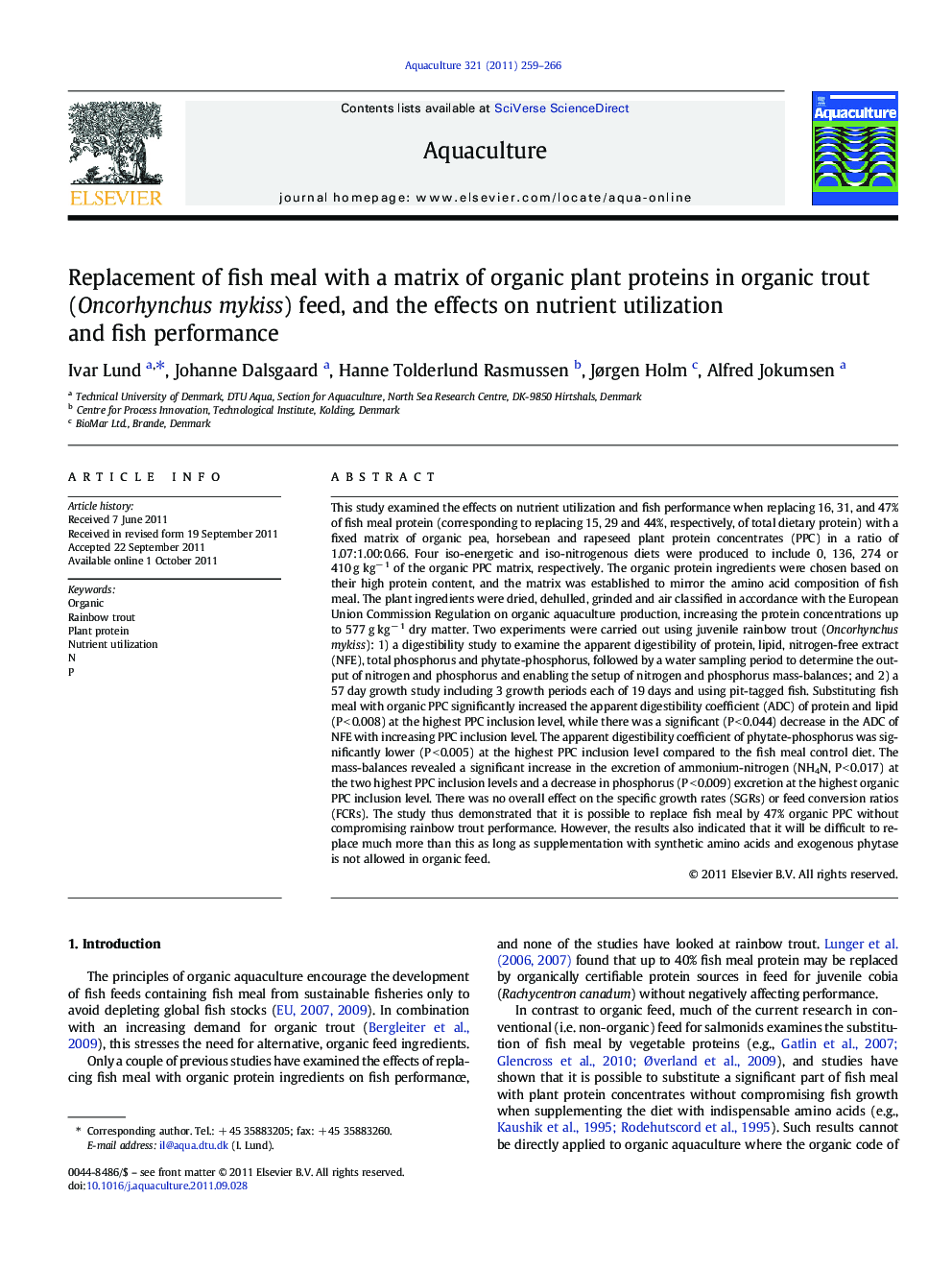| Article ID | Journal | Published Year | Pages | File Type |
|---|---|---|---|---|
| 2422852 | Aquaculture | 2011 | 8 Pages |
This study examined the effects on nutrient utilization and fish performance when replacing 16, 31, and 47% of fish meal protein (corresponding to replacing 15, 29 and 44%, respectively, of total dietary protein) with a fixed matrix of organic pea, horsebean and rapeseed plant protein concentrates (PPC) in a ratio of 1.07:1.00:0.66. Four iso-energetic and iso-nitrogenous diets were produced to include 0, 136, 274 or 410 g kg− 1 of the organic PPC matrix, respectively. The organic protein ingredients were chosen based on their high protein content, and the matrix was established to mirror the amino acid composition of fish meal. The plant ingredients were dried, dehulled, grinded and air classified in accordance with the European Union Commission Regulation on organic aquaculture production, increasing the protein concentrations up to 577 g kg− 1 dry matter. Two experiments were carried out using juvenile rainbow trout (Oncorhynchus mykiss): 1) a digestibility study to examine the apparent digestibility of protein, lipid, nitrogen-free extract (NFE), total phosphorus and phytate-phosphorus, followed by a water sampling period to determine the output of nitrogen and phosphorus and enabling the setup of nitrogen and phosphorus mass-balances; and 2) a 57 day growth study including 3 growth periods each of 19 days and using pit-tagged fish. Substituting fish meal with organic PPC significantly increased the apparent digestibility coefficient (ADC) of protein and lipid (P < 0.008) at the highest PPC inclusion level, while there was a significant (P < 0.044) decrease in the ADC of NFE with increasing PPC inclusion level. The apparent digestibility coefficient of phytate-phosphorus was significantly lower (P < 0.005) at the highest PPC inclusion level compared to the fish meal control diet. The mass-balances revealed a significant increase in the excretion of ammonium-nitrogen (NH4N, P < 0.017) at the two highest PPC inclusion levels and a decrease in phosphorus (P < 0.009) excretion at the highest organic PPC inclusion level. There was no overall effect on the specific growth rates (SGRs) or feed conversion ratios (FCRs). The study thus demonstrated that it is possible to replace fish meal by 47% organic PPC without compromising rainbow trout performance. However, the results also indicated that it will be difficult to replace much more than this as long as supplementation with synthetic amino acids and exogenous phytase is not allowed in organic feed.
► 47% fish meal protein was replaced with a mixture of organic plant protein concentrates (PPC). ► PPC matrix had no negative effect on rainbow trout performance or feed utilization. ► NH4-N excretion increased by substitution of fish meal with organic PPCs. ► Phosphorus excretion decreased with inclusion of PPCs.
